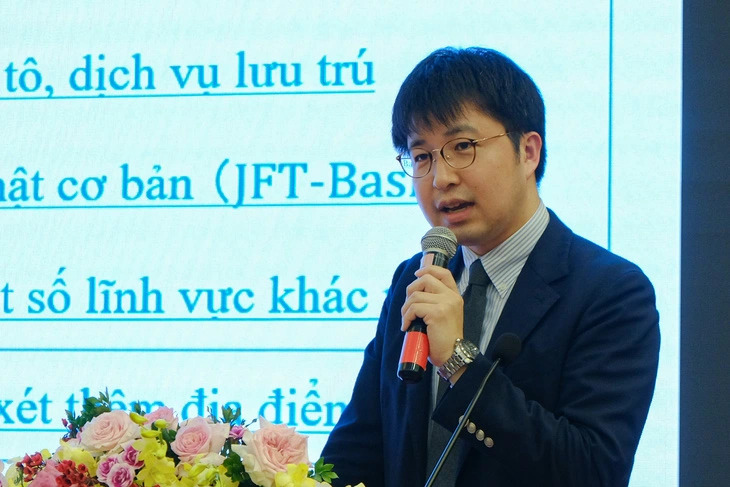Vietnam currently accounts for the most part of foreign workers in Japan, with more than 500,000 laborers, an eight-fold increase over the past 10 years, according to the Japanese Embassy in Vietnam.
Vietnamese workers play an important role in the Japanese economy.
Ishii Chikahisa, first secretary at the embassy, revealed the information at a workshop jointly held in Hanoi on Tuesday by the embassy and the Japan International Cooperation Agency (JICA), focusing on the joint efforts of Vietnam and Japan in promoting labor mobility between the two nations.
With about 520,000 workers, of whom 40 percent are interns, Vietnam makes up the largest proportion of the foreign workforce in Japan, holding a significant role in the development of the Japanese economy, Chikahisa stated.
He added that the number of Vietnamese workers in Japan has grown by eight times over the past 10 years.
The diplomat stated that by the conclusion of 2023, the aggregate count of Vietnamese workers participating in the Specified Skilled Worker program had exceeded 110,000 people, constituting over 53 percent of foreign workers in Japan.
This month, more than 300 candidates participated in an exam under the program in Hanoi, he added.
Besides agriculture and healthcare, many other fields could be added to the program in the future, Chikahisa stated.
He stated that Japan now has a great demand for human resources for 12 industries, including food and beverage production, construction, automobile repair and maintenance, shipbuilding and ship machinery, agriculture, fishery and aquaculture, nursing care, building cleaning management, aviation, and others.
Vietnamese candidates who want to join the specific skilled worker program should improve their Japanese language, vocational skills, and knowledge, he advised.
The diplomat commented that Vietnamese workers are hard-working and diligent.
In early 2024, the Japanese government submitted a new policy for the admission of foreign workers, including those from Vietnam, to Japan's parliament for approval, said Nagata Yuki, head of the policy coordination unit under Japan’s immigration and residency management department.
The new policy centers on three main pillars, including prioritizing the protection of foreign workers' rights in Japan, creating promotion opportunities for them, and ensuring they feel secure in their life in the host country, Juki said.
The workshop heard many opinions including those about job transfer, Japanese language skill improvement, and quota increase for Vietnamese workers.
Kubo Yoshitomo, deputy chief of the JICA Representative Office in Vietnam, emphasized the significance of innovating the admission process for Vietnamese workers, particularly given the persisting challenges such as the high cost of travel to Japan, unfair treatment, and limitations on job mobility.
He told the workshop that Japanese society is aging rapidly, leading to a serious labor shortage that is affecting the country’s economic development.
Japan always wants to build a suitable environment for the admission of foreign workers including those from Vietnam, Yoshitomo affirmed.
Like us on Facebook or follow us on Twitter to get the latest news about Vietnam!




















































